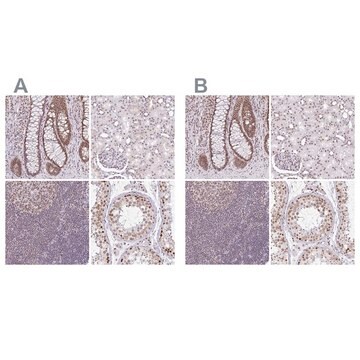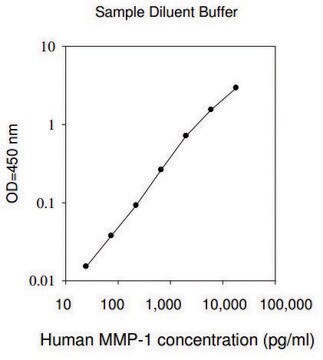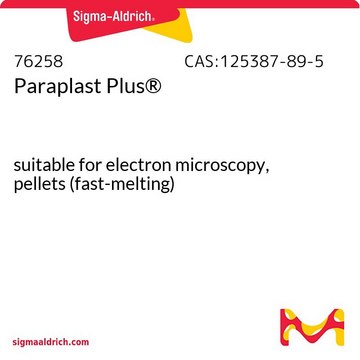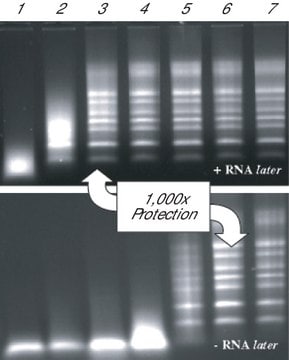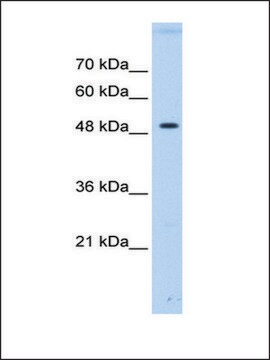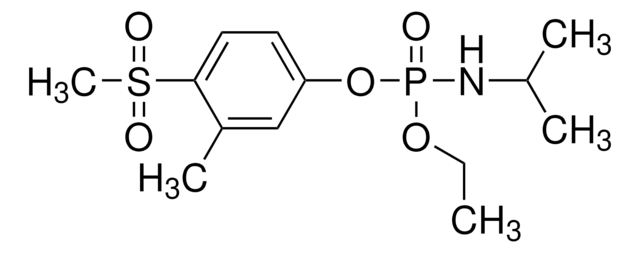SAB4200249
Anti-PTPN2 antibody produced in rabbit

~1.5 mg/mL, affinity isolated antibody
동의어(들):
Anti-PTN2, Anti-PTPT, Anti-TC-PTP, Anti-TCELLPTP, Anti-TCPTP
로그인조직 및 계약 가격 보기
모든 사진(2)
About This Item
UNSPSC 코드:
12352203
NACRES:
NA.44
결합:
unconjugated
application:
WB
클론:
polyclonal
종 반응성:
mouse, rat, human
citations:
11
기술:
western blot: 1.5-3.0 μg/mL using Jurkat cell extracts, rat kidney extracts (S1 fraction) or mouse kidney extracts (S1 fraction).
추천 제품
생물학적 소스
rabbit
Quality Level
결합
unconjugated
항체 형태
affinity isolated antibody
항체 생산 유형
primary antibodies
클론
polyclonal
양식
buffered aqueous solution
분자량
antigen ~48 kDa
종 반응성
mouse, rat, human
향상된 검증
recombinant expression
Learn more about Antibody Enhanced Validation
농도
~1.5 mg/mL
기술
western blot: 1.5-3.0 μg/mL using Jurkat cell extracts, rat kidney extracts (S1 fraction) or mouse kidney extracts (S1 fraction).
UniProt 수납 번호
배송 상태
dry ice
저장 온도
−20°C
타겟 번역 후 변형
unmodified
유전자 정보
human ... PTPN2(5771)
일반 설명
Protein tyrosine phosphatase non-receptor type 2 (PTPN2), also known as T cell protein tyrosine phosphatase (TCPTP), is an intracellular nonreceptor tyrosine-specific phosphatase that is expressed ubiquitously at various stages of mammalian development. PTPN2 exists as two alternatively spliced variants, PTPN2 isoform 1 (p48TC, 48 kDa) that is targeted to the endoplasmic reticulum by a hydrophobic C-terminal region and a shorter PTPN2 isoform 2 (p45TC, 45 kDa) that is targeted to the nucleus.
면역원
synthetic peptide corresponding to a sequence located near the C-terminus of human PTPN2, conjugated to KLH. The corresponding sequence is identical in human PTPN2 isoform 2 and highly conserved (single amino acid substitution) in mouse PTPN2.
애플리케이션
Anti-PTPN2 antibody produced in rabbit has been used in:
- immunoblotting
- immunoprecipitation
- immunostaining
생화학적/생리학적 작용
PTPN2 acts on several cytoplasmic substrates including epidermal growth factor receptor (EGFR), insulin receptor (InsR), Shc, janus kinases (JAKs), and the nuclear substrate signal transducer and activator of transcription 1 (STAT1). PTPN2 has been associated with type 1 diabetes.
Protein tyrosine phosphatase non-receptor type 2 (PTPN2) is a tyrosine phosphatase that negatively regulates tyrosine kinase and JAK/STAT signaling pathways. PTPN2 inhibits oncogenic JAK1 and thereby functions as a tumor suppressor in T-cell malignancies. Genetic alterations in PTPN2 have been associated with the risk of Crohn′s disease and ulcerative colitis .
물리적 형태
Solution in 0.01 M phosphate buffered saline, pH 7.4, containing 15 mM sodium azide.
면책조항
Unless otherwise stated in our catalog or other company documentation accompanying the product(s), our products are intended for research use only and are not to be used for any other purpose, which includes but is not limited to, unauthorized commercial uses, in vitro diagnostic uses, ex vivo or in vivo therapeutic uses or any type of consumption or application to humans or animals.
적합한 제품을 찾을 수 없으신가요?
당사의 제품 선택기 도구.을(를) 시도해 보세요.
Storage Class Code
10 - Combustible liquids
Flash Point (°F)
Not applicable
Flash Point (°C)
Not applicable
가장 최신 버전 중 하나를 선택하세요:
TC-PTP directly interacts with connexin43 to regulate gap junction intercellular communication
Li H, et al.
Journal of Cell Science, 127(15), 3269-3279 (2014)
Protein tyrosine phosphatases and type 1 diabetes: genetic and functional implications of PTPN2 and PTPN22
Cerosaletti K and Buckner JH
The Review of Diabetic Studies : RDS, 9(4), 188-188 (2012)
Protein tyrosine phosphatase non-receptor type 2 and inflammatory bowel disease
Spalinger MR, et al.
World Journal of Gastroenterology, 22(3), 1034-1034 (2016)
T-cell protein tyrosine phosphatase (TCPTP) is irreversibly inhibited by etoposide-quinone, a reactive metabolite of the chemotherapy drug etoposide
Qing N, et al.
Molecular Pharmacology (2019)
Xiaoqing Lu et al.
Blood, 105(7), 2924-2932 (2004-12-14)
Diffuse large B-cell lymphomas (DLBCLs) can be subclassified into germinal center B-cell (GCB)-like and activated B-cell (ABC)-like tumors characterized by long and short survival, respectively. In contrast to ABC-like DLBCL, GCB-like tumors exhibit high expression of components of the interleukin
자사의 과학자팀은 생명 과학, 재료 과학, 화학 합성, 크로마토그래피, 분석 및 기타 많은 영역을 포함한 모든 과학 분야에 경험이 있습니다..
고객지원팀으로 연락바랍니다.